Best movies like Avetik
A unique, carefully handpicked, selection of the best movies like Avetik Starring Alik Asatryan, Mikhail Stepanyan, Karen Dzhanibekyan, Eduard Saribekyan, and more. If you liked Avetik then you may also like: Rabbit à la Berlin, Almost There, America America, Archangel, The Corridor and many more popular movies featured on this list. You can further filter the list even more or get a random selection from the list of similar movies, to make your selection even easier.
Hovering between the realms of poetry and history, this stunningly photographed, elegiac work – shot mostly in long takes – mixes cryptic metaphor and fantastic symbolism to tell the story of Avetik, an Armenian filmmaker exiled in Berlin. In sensuous, lyric styling, Askarian employs dreamlike images to reflect the history of his homeland, tranquil childhood memories, images inspired by erotic medieval poetry, and autobiographical shades of his own exile in Germany.
Avetik
You may filter the list of movies on this page for a more refined, personalized selection of movies.
Still not sure what to watch click the recommend buttun below to get a movie recommendation selected from all the movies on this list
Almost There
A coming-of-(old)-age story about Peter Anton, an elderly "outsider" artist living in isolated and crippling conditions whose world changes when two filmmakers discover his work and storied past. Shot over eight years, ALMOST THERE documents Anton's first major exhibition and how the controversy it generates forces him to leave his childhood home. Each layer revealed reflects on the intersections of social norms, elder care, and artistic expression.
America America
A young Anatolian Greek, entrusted with his family's fortune, loses it en route to Istanbul and dreams of going to America.
The Corridor
The atmosphere of a corridor between yesterday and tomorrow, where many doors open into the unknown. A series of faces, gestures and images both real and imagined time. A fragmentary narrative without dialogue depicting several people in Vilnius.
Evolution
In EVOLUTION, acclaimed filmmaking team Kornél Mundruczó and Kata Wéber (PIECES OF A WOMAN) return with a powerful drama tracing three generations of a family, from a surreal memory of World War II to modern day Berlin, unable to process their past in a society still coping with the wounds of its history. Like the water that connects the episodes in this triptych, memory and identity are fluid, and how we relate to it can drown or buoy. The pain and stigma that trickles from Eva, to Lena and then Jonas is inexpressible, yet rendered with striking imagery by Mundruczó and a wrenchingly poignant yet acerbically ironic and personal script by Weber. While generational traumas find new expression in the present, the family in EVOLUTION looks towards a more hopeful future
Frank Film
A compilation of images co-creator Frank Mouris had collected from magazines interwoven with two narrations, one giving a mostly linear autobiography and the other stating words having to do with the images, the story the first voice is relating, or neither.
Our Hitler: A Film from Germany
This inventive, exhaustive seven-hour film looks at the rise, reign and demise of Adolf Hitler. German director Hans Jürgen Syberberg, who was a child during World War II, doesn't try to recreate history to the letter. Instead, he places his actors -- many of whom play several roles -- on a stage and has them reenact events based on and inspired by Hitler's life. The action combines traditional narration and historical characters, but also idiosyncratic tweaks, like the use of puppets.
Karl May
This ethereal, three-hour biopic is the middle film in Hans-Jürgen Syberberg’s “German Trilogy” on the mythological foundations of the Third Reich. By fusing theater, music, and cinema, Syberberg conjures up Karl May (1842-1912), the immensely popular German author, who set many of his adventure novels in an idealized version of the American Wild West. His tales of the cowboy and the Ubermensch alike were beloved by many, including (Our) Hitler, who supposedly ordered his generals to read May works after defeats in the Russian campaign.
Ludwig – Requiem for a Virgin King
Reflected in an artificial and bombastically staged illusory world with Wagnerian compositions, glossy and satirical time references, 19th century German figures and traditions are stripped of their mythology and interpreted by the Germany of 1972.
Parajanov: The Last Spring
Made in wartime and edited in candlelight, Mikhail Vartanov's rarely-seen masterpiece tells about his friendship with the genius Sergei Parajanov who was imprisoned by KGB "at the peak of his artistic power". Vartanov takes us back with the scenes from his censored 1969 film The Color of Armenian Land where Paradjanov is at work on his suppressed chef-d'oeuvre The Color of Pomegranates - widely regarded as one of the greatest films of all time - and contrasts it with the shocking request Parajanov sent him in unpublished 1974 letters from the Soviet prisons. Vartanov's camera documents Parajanov's striking last day at work in 1990 during the making of the unfinished Confession. A monumental wordless montage - the entire sixth reel - concludes Vartanov's acclaimed documentary, which, despite the prohibitive conditions it was created in, won the admiration of many of cinema's greatest artists, including Francis Ford Coppola and Martin Scorsese.
Secrets of a Soul
Werner Krauss, who had played the deranged Dr. Caligari six years earlier, stars as a scientist who is tormented by an irrational fear of knives and the irresistible compulsion to murder his wife. Driven to the brink of madness by fantastic nightmares (designed by Ernö Metzner and photographed by Guido Seeber in a brilliant mix of expressionism and surrealism), he encounters a psychoanalyst who offers to treat the perplexing malady.
Group Portrait with a Lady
The story follows the life of a regular German women Leni Gruyten during the 1930s and 1940s. Through her interactions with friends, family and other people she knows, the regular folks' perception of the Nazi era is shown.
Born in Evin
Follows filmmaker and actress, Maryam Zaree, on her quest to find out the violent circumstances surrounding her birth inside one of the most notorious political prisons in the world.
Cat and Mouse
In 1966, a former gymnast returns to his hometown Danzig, which is now a part of Poland. He begins to reflect on one of his classmates, Joachim Mahlke, who disappeared during World War II. Mahlke was initially marked as an outsider due to his oversized Adam’s apple, but when he turned out to be a great diver, the in-crowd embraced him. Then he steals a Knight’s Cross from a soldier and is expelled from school. Volunteering for war service, he earns a medal himself and hopes his reputation will be rehabilitated. But the school principal refuses and Mahlke deserts from the army…
On the Old Roman Road
In Holland, a group of Armenian terrorists have swung into action, murdering a Turkish intelligence agent and holding his son for ransom. As the battle of wits between the terrorists and the Dutch police plays itself out, an author from Armenia living in Rotterdam finds himself following the events as he thinks back on his life in his homeland, indulging in fantasies about his past, his future, and his obsessions.
A Woman, My Mother
Filmmaker Claude Demers tells the story of his search for his biological mother and their eventual meeting. He does this in voice-over, accompanied by images from Canada's national archives. The painstakingly selected and fluidly edited black-and-white clips build up, like the perfectly fitting pieces of a puzzle; an impression of his mother as he had imagined her. How she grew up, worked, loved and left him.
Saroyanland
Saroyanland is a docu-drama focusing on the journey of famous writer William Saroyan to the birthplace of his Armenian family Bitlis, in Turkey in 1964. While retaking the same road, the film aims to understand Saroyan's unique attitude to belonging, witnessing the self-discovery of a man who followed the traces of his Armenian ancestors.
Komitas
The film is dedicated to the Armenian monk and genius composer Komitas, and the 2 million victims on his people in Turkey in 1915. The final 20 years of Komitas life were spent in various mental hospitals. The destiny of Komitas? This is the magic beauty of Armenian culture and the abhorrent brutality of Armenian history. A cultural and artistic world that was slaughtered with a curved knife. A humanity that doggedly advances towards an apocalyptic catastrophe, that does not recognize its own original purpose, eradicates its own memory, its final roots.
The President
Cameroonian filmmaker Jean-Pierre Bekolo's newest work uses split-screens (at times, up to four images simultaneously) to present a fake documentary in which "the president" has disappeared; talk-show hosts, rivals, politicians and even rappers chime in on what may have occurred, and what their president for life has—or has not—done for Cameroon.
Artur Schnabel: No Place of Exile
The exiled Austro-German musician and composer Artur Schnabel was a giant of his time, but in Germany today he is nearly forgotten. Pianist and Schnabel devotee Markus Pawlik (in collaboration with baritone Dietrich Henschel and the Szymanowski String Quartet) brings Artur Schnabel's greatest compositions back to Berlin with a filmed commemorative concert. Along the way, Pawlik visits the places, landscapes, and history that shaped Schnabel's life and music. "Artur Schnabel: No Place of Exile" rediscovers an essential artist displaced by the catastrophe of the two World Wars and the Holocaust and inspired by the possibilities of modernism.
Changing Skins
Inspired by West German terrorists, two pupils hijack a teacher in the GDR.//"Andreas Dresen is one of the most successful contemporary German filmmakers whose career began as the Berlin Wall was crumbling."// “Andreas Dresen’s films open a window into the hearts and minds of everyday people facing-yet not always surmounting-life’s challenges. Like Andrzej Wajda, Dresen consistently portrays the human condition with honest insight and compassion.”//
The Sensuous Three
While out on the town in Berlin, Raymond sees and falls for Harlis, a star of a troupe of lesbian cabaret strippers. Attracted to a man for the first time, Harlis leaves her long time girlfriend and dance partner. Overwhelmed by jealousy and anger, his brother (Peter) and his ex-fiancee (Ria) are determined to sabotage this budding romance.
1-900-TONIGHT (Somewhere Tonight)
1-900-TONIGHT (Somewhere Tonight) is an urban fable that tells the story of two lonely New Yorkers trying to find companionship over an adult chat phone line. John Turturro plays Wooly, a simple, curiously odd bike messenger hoping to hear a bit of 'spicy' talk from Patti (Katherine Borowitz), an agoraphobic shut-in. Although each is not what the other hopes they will be, together they prove that wisps of enchantment can be found in even the most overlooked of hearts. And that hope takes on many unexpected shades. Inspired by slain Dutch filmmaker Theo Van Gogh's 06. Written by Michael Di Jiacomo
Fantastic Beasts: A Natural History
Stephen Fry embarks on a journey to discover the stories behind some of the world's most fantastic beasts that have inspired myths and legends in history, story-telling and film.
Paris 1919: Un traité pour la paix
The last shots had been fired in the First World War — but peace had yet to be made. Inspired by Margaret MacMillan’s acclaimed work of popular history, Paris 1919 takes us inside the most ambitious peace talks in history, revisiting the event with a vivid sense of narrative. Evoking a pivotal moment when peace seemed possible, director Paul Cowan reflects upon the hard-learned lessons of history.
Cinema's Exiles: From Hitler to Hollywood
Eight hundred German filmmakers (cast and crew) fled the Nazis in the 1930s. The film uses voice-overs, archival footage, and film clips to examine Berlin's vital filmmaking in the 1920s; then it follows a producer, directors, composers, editors, writers, and actors to Hollywood: some succeeded and many found no work. Among those profiled are Erich Pommer, Joseph May, Ernst Lubitsch, Fritz Lang, Billy Wilder, and Peter Lorre. Once in Hollywood, these exiles helped each other, housed new arrivals, and raised money so others could escape. Some worked on anti-Nazi films, like Casablanca. The themes and lighting of German Expressionism gave rise in Hollywood to film noir.
Reunification in the Ice: The Story of the Last GDR Antarctic Explorers
In 1989, thirteen GDR scientists and technicians set off from East Berlin to the Georg Forster research station in the Antarctic. During their expedition the Berlin Wall fell on November 9th. Cut off from the images that go around the world, the men can only experience the historical events passively. When they returned in the spring of 1991, their homeland was a foreign country. The documentary reconstructs the thoughts and feelings of the East German researchers on the basis of eyewitness accounts, diary excerpts, letters, film material, grandiose landscape shots from the location of the action and unique photos to make the consequences of the events tens of thousands of kilometers away on the small GDR expedition in the middle of the eternal ice tangible.
My Homeland
Perhaps this is Robert Vas' most personal film; a portrait of his country - Hungary - as seen through the eyes of an exile. Robert Vas escaped from his homeland after the brutal crushing of the 1956 Hungarian Uprising by the Russians and he was never able to return. He portrays his country through the writings of Hungary's national poets and illustrates the film with images of the Revolution and of the society it would become in the years immediately following 1956. The film was transmitted on the 20th anniversary of the crushing of the uprising.
Take That: We've Come a Long Way
As Take That, one of Britain's most successful and best-loved bands, mark their 30th anniversary, they are celebrated in this special one-off programme. It features fans from all over the country, and beyond, sharing their stories of how the band touched their lives - and in some cases, changed their world completely. This most successful boy band in UK chart history are reunited, with Robbie Williams joining them to share favourite memories as they reflect on three decades in the spotlight. It also offers up candid, previously unseen material that they shot over the years. There is also a reunion for the boys' biggest fans of all - the five, proud Take That mums. The band takes us on a guided tour of significant Take That locations, with some memorable fan surprises along the way. With a glimpse of their preparations for their anniversary album, we also see them in the studio with Bee Gees legend Barry Gibb.
The Angelic Conversation
The Angelic Conversation is a lyrical, haunting film about a young man’s search for love in a dreamlike landscape. Its tone is set by the juxtaposition of slow moving homo-erotic images and opaque landscapes through which two men take a journey into their own desires. Offscreen, Dame Judi Dench recites a sequence of Shakespeare's sonnets that counterpoint the action. Jarman called it, “My most austere work, but also the closest to my heart.”
Parsifal
A psychological interpretation of the opera mixing in references to the history of Germany, Wagner’s life, German literature and philosophy. The action is centered on Wagner’s death mask. Kundry is the main character – one might read the film as the story of her redemption rather than that of Amfortas.
Phantom Images
A filmmaker continues shooting his film after his funding is pulled - a grim reality he has kept secret from his cast. His mind awash in the noise of memory and morphine, he reflects on his own life through the characters in his script. The story is told with highly stylistic vignettes projected in the black void of his mind, bringing to life each of the characters he has created on paper. "Phantom Images" explores the new challenges confronting gay men - and the cultural changes that have made communication between generations more difficult.
Long Is the Road
"Long is the Road" - The first feature film to represent the Holocaust from a Jewish perspective. Shot on location at Landsberg, the largest DP camp in U.S.-occupied Germany, and mixing neorealist and expressionist styles, the film follows a Polish Jew and his family from pre-war Warsaw through Auschwitz and the DP camps.


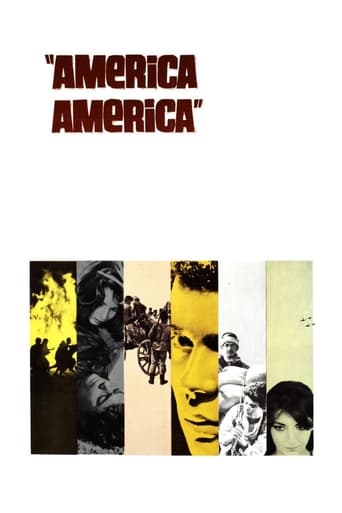
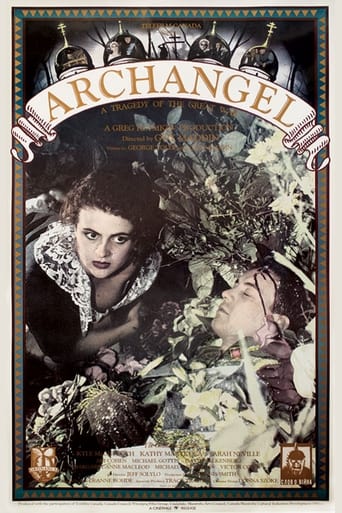










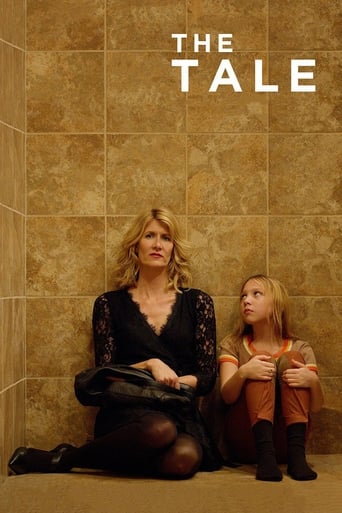






















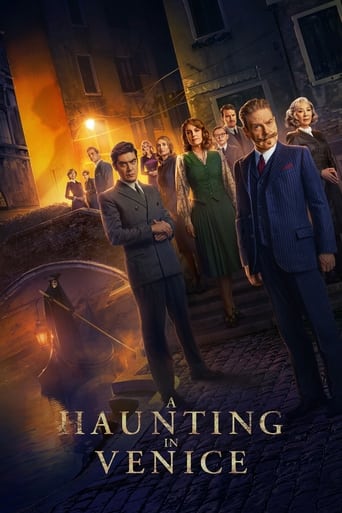
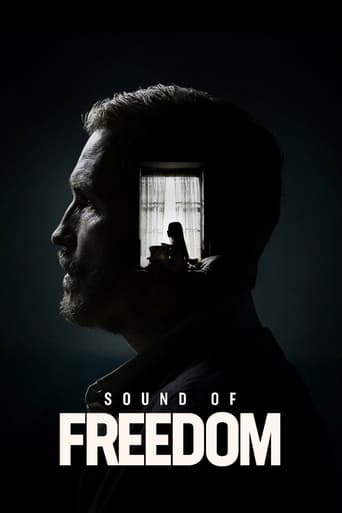
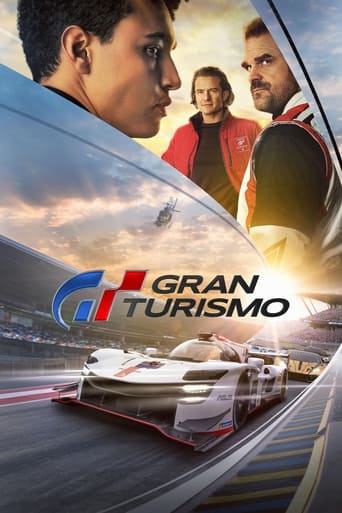
Rabbit à la Berlin
The untold story about wild rabbits which lived between the Berlin Walls. For 28 years Death Zone was their safest home. Full of grass, no predators, guards protecting them from human disturbance. They were closed but happy. When their population grew up to thousands, guards started to remove them. But rabbits survived and stayed there. Unfortunately one day the wall fell down. Rabbits had to abandon comfortable system. They moved to West Berlin and have been living there in a few colonies since then. They are still learning how to live in the free world, same as we - the citizens of Eastern Europe.